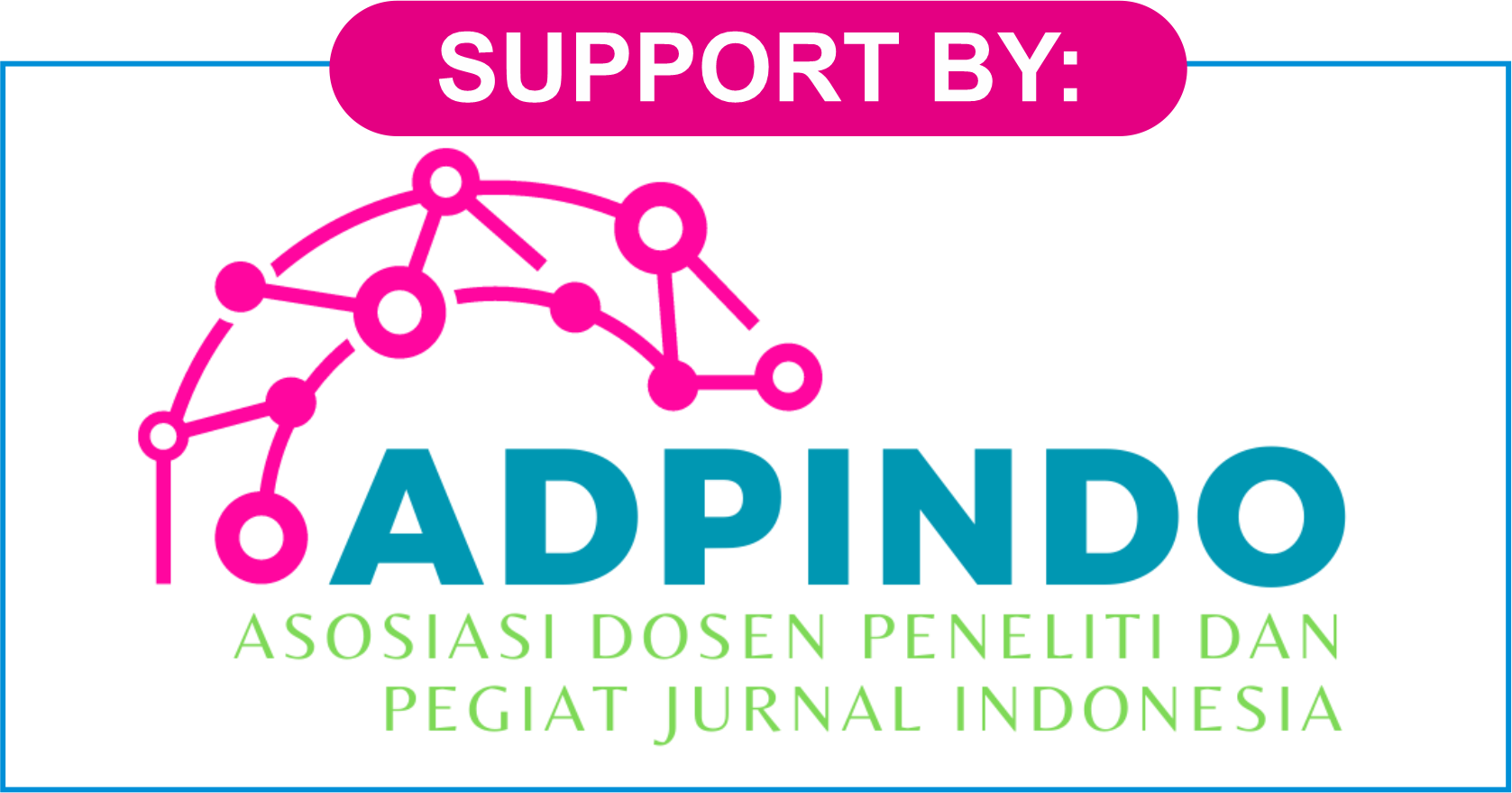PENGARUH LOKUS KENDALI TERHADAP PERILAKU PENGELOLAAN KEUANGAN DENGAN PENGETAHUAN KEUANGAN SEBAGAI VARIABEL MODERATOR
DOI:
https://doi.org/10.47353/sikontan.v2i2.1496Keywords:
locus of control, financial management behavior, financial knowledge, millenialAbstract
Financial problems, one of which is carelessness in managing finances, cause Generation Y's finances to become irregular. Rampant buying of branded clothes, hanging out in cafes, and going on holiday impulsively, accompanied by a lack of financial knowledge, means they don't have good control over their income, so they don't have savings, investments, insurance, or long-term financial plans. This research was conducted to examine the influence of locus of control on financial management behavior in Generation Y in Indonesia, with financial knowledge as a moderator variable. The quantitative survey method was used to collect 122 research samples aged 23–43 years from various cities in Indonesia. The measuring instruments used are the IPC-Scale, the FMBS (Financial Management Behavior Scale), and the Financial Knowledge Scale. Research data analysis was carried out using simple linear regression analysis and moderated regression analysis. The results of this research show that there is a significant influence of locus of control on the financial management behavior of Generation Y in Indonesia, and financial knowledge can't moderate the influence of this relationship model.
Downloads
References
Amri, A., Ramdani, Z., Warsihna, J., & Tae, L. F. (2022). The Development and Validation of Financial Management Behavior (FMB) Scale in Postgraduate Students. Jurnal Manajemen Indonesia, 22(2), 189–198. Telkom University.
Amri, A., Widyastuti, T., & Bahri, S. (2021). Analisis Korelasional Financial Attitude, Financial Knowledge, dan Spiritual Intelligence pada Mahasiswa Pascasarjana. Jurnal Ekonomi Syariah, 6(1).
Bamforth, J., & Geursen, G. (2017). Categorising the money management behaviour of young consumers. Young Consumers, 18(3), 205–222. Emerald Group Publishing Ltd.
Bapat, D. (2019). Exploring antecedents to financial management behavior for young adults. Journal of Financial Counseling and Planning, 30(1), 44–55. Springer Publishing Company.
Birkenmaier, J., & Fu, Q. J. (2019). Does Consumer Financial Management Behavior Relate to Their Financial Access? Journal of Consumer Policy, 42(3), 333–348. Springer New York LLC.
Chen, H., & Volpe, R. P. (1998). An Analysis of Personal Financial Literacy Among College Students. Financial Services Review, 7(2), 107–128.
Dew, J., & Xiao, J. J. (2011). The Financial Management Behavior Scale: Development and Validation. Journal of Financial Counseling and Planning, 22(1), 43–59. Citation/Publisher Attribution Citation/Publisher Attribution Dew. Retrieved from http://afcpe.org/journal-articles.php?volume=387&article=403Availableat:http://afcpe.org/journal-articles.php?volume=387&article=403
Dewi, V. I., Febrian, E., & Anwar, M. (2020). Financial Literacy among the Millennial Generation: Relationships between Knowledge, Skills, Attitude, and Behavior. Austalasian Accounting, Business, and Finance Journal, 14(4), 24–37.
Grable, J. E., Park, J.-Y., & Joo, S.-H. (2009). Explaining Financial Management Behavior for Koreans Living in the United States. The Journal of Consumer Affairs, 43(1), 80–107.
Hogarth, J. M., & Hilgert, M. A. (2002). Financial Knowledge, Experience and Learning Preferences: Preliminary Results from a New Survey on Financial Literacy. Consumer Interest Annual, 48(2002), 1–7. Retrieved October 23, 2023, from https://www.consumerinterests.org/assets/docs/CIA/CIA2002/hogarth-hilgert_financial%20knowledge.pdf
Kholilah, N. Al, & Iramani, Rr. (2013). STUDI FINANCIAL MANAGEMENT BEHAVIOR PADA MASYARAKAT SURABAYA. Journal of Business and Banking, 3(1), 69–80.
Levenson, H. (1981). Differentiating Among Internality, Powerful Others, and Chance. Research with the Locus of Control Construct (pp. 15–63). Elsevier.
Mutlu, Ü., & Özer, G. (2022). The moderator effect of financial literacy on the relationship between locus of control and financial behavior. Kybernetes, 51(3), 1114–1126. Emerald Group Holdings Ltd.
Oktorisapela, J. (2015). Hubungan Antara Locus Of Control Dengan Coping Stress Pada Dokter Muda DI Universitas Gadjah Mada Yogyakarta. Universitas Airlangga, Surabaya. Retrieved July 1, 2023, from https://repository.unair.ac.id/26534/
Otoritas Jasa Keuangan. (2022). Hasil Survei Nasional Literasi dan Inklusi Keuangan Tahun 2022: Indeks Literasi dan Inklusi Masyarakat Meningkat. Jakarta. Retrieved June 2, 2023, from https://www.ojk.go.id/id/berita-dan-kegiatan/info-terkini/Pages/Infografis-Survei-Nasional-Literasi-dan-Inklusi-Keuangan-Tahun-2022.aspx#:~:text=Hasil%20SNLIK%202022%20menunjukkan%20indeks,2019%20yaitu%2076%2C19%20persen.
Perry, V. G., & Morris, M. D. (2005). Who Is in Control? The Role of Self-Perception, Knowledge, and Income in Explaining Consumer Financial Behavior. The Journal of Consumer Affairs, 39(2), 299–313.
Remund, D. L. (2010). Financial Literacy Explicated: The Case for a Clearer Definition in an Increasingly Complex Economy. Journal of Consumer Affairs, 44(2), 276–295.
Rika, H. (2021, August 19). Indeks Perilaku Keuangan Generasi Muda Cuma 37,72 dari 100. CNN Indonesia. Jakarta. Retrieved June 4, 2023, from https://www.cnnindonesia.com/ekonomi/20210819171218-78-682584/indeks-perilaku-keuangan-generasi-muda-cuma-3772-dari-100
Rotter, J. B. (1966). Generalized Expectancies for Internal Versus External Control of Reinforcement. Psychological Monographs: General and Applied, 80(1).
Sabri, M. F., Wahab, R., Mahdzan, N. S., Magli, A. S., & Rahim, H. A. (2022). Mediating Effect of Financial Behaviour on the Relationship Between Perceived Financial Wellbeing and Its Factors Among Low-Income Young Adults in Malaysia. Frontiers in Psychology, 13. Frontiers Media S.A.
Safitri, I. N. (2013). Kepatuhan Penderita Diabetes Mellitus Tipe II Ditinjau dari Locus of Control. Jurnal Ilmiah Psikologi Terapan, 01(02), 273–290.
Xiao, J. J. (2008). Applying behavior theories to financial behavior. Handbook of Consumer Finance Research (pp. 69–81). Springer New York.
Zemke, R., Raines, C., & Filipczak, B. (2013). Generations at Work: Managing the Clash of Boomers, Gen Xers, and Gen Yers in the Workplace (Second Edition.). New York: AMACOM. Retrieved from www.amanet.org
Zulvia, Y., Nasli, R., & Lasmini, R. S. (2022). Millennial (Gen Y) Financial Management Behavior: The impact of Financial Knowledge, Financial Attitude and Self Control.
Downloads
Published
How to Cite
Issue
Section
License
Copyright (c) 2023 Regita Deya Amanda, Rosatyani Puspita Adiati

This work is licensed under a Creative Commons Attribution 4.0 International License.











